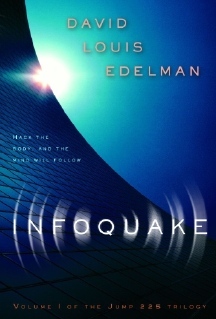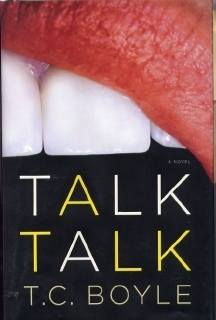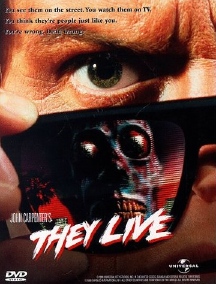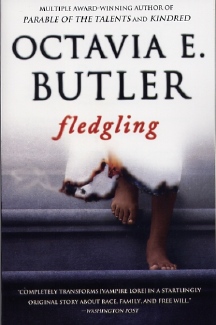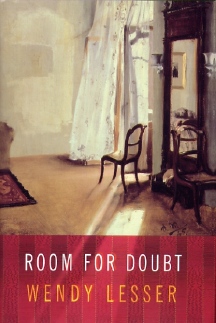Trashotron.com |
||
This Just In...News From The Agony Column
01-08-07: UPDATE: Economic Genre Fiction with update to NPR Page and DRM-Free MP3 Version
Link to Audio for NPR Economic Genre Fiction Story Updated 01-08-07 16:00.
The link to the NPR story page is here.The "Email this Story" link is here.
The DRM-Free Broadcast, taped-from-the-radio MP3 version is: Here.
The DRM-free MP3 direct-from-NPR mix with NPR promos is here.
An improved full-fidelity MP3 will be available at the end of the week. Please listen to this one, then I'd appreciate it if you'd hit the NPR email this story page and email the story to yourself to let NPR know you wanted this sort of thing in the future. Or email them and tell them that you enjoyed this and would like to hear more like it. Thanks.
01-05-07: The Dismal Science Fiction
An NPR Weekend Edition Sunday Report
I always wonder if readers can spot the bees in my bonnet.
The fault lines are established.
I suppose not. But they are clearly there, clustered about and stinging my brain. As along ago as June of last year, I found myself under attack by a particularly virulent stinging insect that injected my tiny mind with all sorts of ideas about fiscal fiction, that is, books in which the science of economics or just plain old cashola itself play a vital role.
This was triggered in part by a conversation with Cory Doctorow and in part by the release of David Louis Edleman's novel, 'Infoquake'. I remember that as soon as I got the ARC of that book, I wrote Pyr Editor Lou Anders and told him it was the Next Big Thing, and apparently, I was not hallucinating as the result of those bad stinging insects. A major book chain has declared 'Infoquake' the SF&F title of the year, and it's received lots of praise from reviewers other than myself. Of course, few people have as highly developed a filter as I have. Bad stuff just bounces off of me like ducks' backs. But please, don't throw any ducks' backs at me to verify this assertion.
Cut to a few months later and I'm interviewing TC Boyle about 'Talk Talk', realizing that it is literally an economic horror novel, based on the work of Edgar Allen Poe. Poe meets identity theft. Terror results when a writer as brilliant as Boyle gets a fiscal grip around your throat. Well, terror at least if you're the one who writes out the checks for the bills as do I. Just did so today. Still recovering.
After that, everything falls into line, and the result is my forthcoming report on Economic Themes in Genre Fiction–and the Economic Fiction Genre for NPR's Weekend Edition Sunday. It's scheduled to be broadcast this Sunday, assuming that no news-consuming event bumps it. Graven in dry-erase. The course to this report was long and thorny. It features: TC Boyle ('Talk Talk'), Charles Stross('The Family Trade', 'Missile Gap'), Jeff VanderMeer ('Shriek: An Afterword'), David Louis Edelman ('InfoQuake') and Amir D. Aczel ('The Artist and the Mathematician'). Oh.
And John Carpenter, in the form of THEY LIVE.
Not as I told Mr. Anders, your usual NPR lineup. Not ANYBODY'S usual lineup.
Except perhaps here at The Agony Column.
My editors over at NPR were an enormous help in shaping this piece, sonically and thematically. Let me assure you the sound quality they get is excellent. I think readers will enjoy this and more importantly, I believe that many who hear these writers speak will want to read their works. And hopefully it will successfully tweak listeners perceptions of the books they read and see.
If the story is broadcast this weekend on WeSun, it’s most likely to run in the last half of the second hour, at about twenty before the hour. This will be the hour without the Will Shortz segment. Check around noon on Sunday for the RealAudio URL. This last is your most vital piece of information, since it will allow you to hear and share the report if you miss it on NPR and if you simply want to hear it again.
In general, I try to refrain from asking readers to do stuff like fill out reg forms or whatever, but I'm hoping that a few of you will go to the link that goes up at NPR.org for the story and email the story to yourselves and your friends. If this story gets emailed a lot, and gets positive feedback, they'll let me do more stories, even stranger stories. How strange? One need but look to this column in the weeks ahead to find evidence of the bees currently buzzing in my bonnet. They are not making me hallucinate. Nor are they hallucinations. You can see them, can't you?
01-04-07: Octavia E. Butler's 'Fledgling'
Taking Flight
Last year, literature lost Octavia Butler, one of our greatest talents. This year, Warner Books is issuing a handsome set of trade paperbacks covering her whole career, from 'Parable of the Sower' to her latest, 'Fledgling' (Hachette Books / Warner ; January 2, 2007 ; $13.99). The lineup is very nicely done, and 'Fledgling' is wonderful novel that is perfect the peculiar combination of concerns the readers of this column seem to find of interest. Butler is really the picture -perfect author for the Agony Column; she was a literary genius with a precise imagination that she let roam freely. She used her creative talents to craft visions of this world and others that made events in ours seem more vivid.
In 'Fledgling', Butler turns her hand to the vampire trope. Shori, the vampire heroine of 'Flegdling' wakes up hungry, alone and in pain. Who is she? More importantly, what is she? She craves blood. Is she human? And just what does that mean, exactly?
All questions that Butler has dealt with in her past work, but here she recasts them in a taut narrative that takes some great liberties with vampires as we know them. These are not vampires as we know them. Butler was a science fiction writer, and this is reflected in her take on the vampire fiction genre. More than most writers, Butler humanizes the genre. By this I don’t mean that her vampires are more human than most, but rather, that her work spends more time contemplating what the nature of the vampire tells us about the nature of the humans from whence they are derived. Or created. Or...manufactured.
Butler should be on most reader's auto-buy lists, but if she's not on yours yet, it's nice to know that Warner is re-issuing the whole back-catalogue. She is a fascinating writer who I suspect will appeal to an audience much wider than those who are already aware of her work. Her combination of a passion for real humanity with all its quirks and fidgets, with an imagination that enabled her to externalize those quirks with the tropes of genre fiction in an intelligent and believable manner are precisely what readers seek. Mostly, however, she's a great storyteller, with an ability to craft taut narratives that have a very nice aftereffect of thoughtful consideration. Sure you're reading a toe-tapping tale of vampire terror now. But even before you finish, your mind wanders back through the words, the ideas and images and considers the questions implicit in the events, in Butler's imaginative leaps and intuitive incantations. She does cast a spell. Butler is a literary magician. Let your mind take flight with 'Fledgling'. Vampires are, after all, mortal; Butler and her work are the stuff of centuries.
01-03-07: Caitlin R. Kiernan, 'Daughter of Hounds'
Post-Millennial Mythos
|
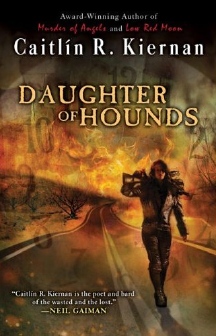 |
|
| We like our Loveraftian saviours dressed in black leather. |
The beings that hover outside our world are ever waiting to devour our souls in a feast that cannot be imagined, only experienced. It's not a pleasant prospect, but it's all some folks have to define their lives. At least in Caitlin R. Kiernan's bleak worldview. Her latest novel, 'Daughter of Hounds' (Roc / New American Library / Pengin Putnam ; January 2, 2007 ; $13) is a deeply haunted story of warriors and innocents, of death and a dozen states worse than death. Readers who like their Lovecraft armed to the teeth, dressed in black leather and ready to rumble had best get crackin' on down to the bookstore before said beings yank this title off the shelves. 'Daughter of Hounds' is the kind of thing that attracts their attentions. Of course if you’re reading and you get their attentions well, all bets are off. But that's why you'd want to read it.
This time around, Kiernan heads directly into Lovecraft country; that is, under the streets of New England where ghouls feed and fester. Emmie Silvey, the damned daughter of Deacon Silvey is having bad dreams. Soldier, an ass-kicking demon killer is living bad dreams as she cuts a swathe of destruction not through but beneath the means streets. It's certain they will meet. The how and why offer readers an experience that you just can't get elsewhere.
This is because Kiernan more than most has a handle on what Lovecraft did and did well. Kiernan knows how to conjure the outside, the ancient, those forces that are so different from us so as to cause madness. She started her journey into an unknowable past with 'Threshhold', and with each successive novel she's become better and better at conjuring both the actions and the emotions – or lack thereof – of those who encounter it. To my mind, 'Daughter of Hounds' is her best yet, one of those novels where you can pick it up and open it to almost any page and find yourself immersed in images that summon the outer darkness into your snug little life.
But 'Daughter of Hounds' does a lot more than just bring on the deep chills. Kiernan's really, really furious this time around. Kiernan is always good at the slow-burning prose, the kind of coiled power that one might imagine comes from swallowing fishhooks. 'Daughter of Hounds' displays her skill at creating a densely layered and carefully orchestrated plot, chock-a-block with lots of hideous monsters and scenes of incipient madness. No, she's not just replaying last year's CNN news crawl. But her work does bring to mind the sorts of terror that are eating up our world, but by bit, bite, by bite.
I will suggest that 'Daughter of Hounds' is itself best consumed after reading Kiernan's other works in order of publication, particularly: 'Threshold', 'Low Red Moon', and 'Murder of Angels'. If you are still of this world, then it's probably safe to tuck into 'Daughter of Hounds'. Of course, I'm the sort of compulsive who insists on such matters. But heck, go ahead, throw safety to the wind. You only have one life. You do however, have, many, many deaths. 'Daughter of Hounds' is your chance to discover some of the more peculiar and less pleasant versions of death that await you.
01-02-07: Wendy Lesser Leaves 'Room For Doubt'
We Are Not What We Do Not Do
I sent many a letter to Wendy Lesser, back in the day. "Dear Ms. Lesser; Enclosed with this letter you'll find a disposable copy of my story..."
Presumably she did find them. And one might presume as well that they weren't what she was looking for. Lesser, the editor of The Threepenny Review, writes particularly well about her personal searches in 'Room for Doubt' (Pantheon Books / Random House ;. January 9, 2007 ; $23.95). Lesser does something that is extremely difficult and like the best writers amongst us, makes it look very easy. 'Room for Doubt' is a memoir of sorts, as much as you can write a memoir about the things you think yourself unable to do. Then you do them. One layer of clarity gives way to another layer of mystery; one conquest begets another failure. In room for doubt, Lesser manages to make clear the implications of those things we do not do.
For Lesser this starts with Germany. She's Jewish, but, she tells us, "I am not and never have been a good Jew." So perhaps this is why she subtly refuses to visit Germany. Or rather it is not so much that she refuses to go, but the option to go there is, as we can say in this computer-literate age, grayed-out on her personal menu. The very idea seems absurd, and faintly unpleasant. Her faint repugnance at the prospect of traveling to Germany gives way to her inability to write about David Hume, in a project that she has created for herself. And Hume, in turn, leads her to her Difficult Friend. We all have a Difficult Friend, don’t we? Sometimes it seems as if we only have difficult friends.
Lesser's work is a really interesting example of a writer embracing contradictory notions and working through the contradictions to some understanding if not comfort. And the reason to pick this up and read it is because it is a superb example of writing, of a writer who tackles a difficult subject in a very personal manner but evokes a universally applicable result. It's not the conclusions but the processes that grab a reader in 'Room for Doubt'. Each word is important because each word leads us closer to the core of Lesser's own confusion. As we work our way through her language we can map out our own language for our own contradictions. She doesn't force the issue, she just lets the language do the work for both her and the reader. This is a very subtle book.
'Room for Doubt' manages the feat of addressing bitterness without being bitter; of talking about lack of direction while finding direction; of avoiding conclusions only to arrive at them. It's better than therapy, a lot cheaper and it never asks you how anything makes you feel. 'Room for Doubt' gives you language as logic a series of lemmas from Lesser's life in order that you might be able to make sense of your own life. Exploring someone else's doubts should not be as enjoyable as 'Room for Doubt'. But I'll take my enjoyment where I can find it. When and if that is what I seek.
01-01-07: We've Got Five Years
A 2006 Interview With Christopher Paolini
|
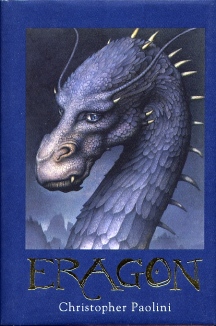 |
|
| Not what you expected, eh? Hey, not what I expected either, but it was a lot of fun. |
As you might surmise, one has little to do with the other, other than five years ago I never thought I'd be doing what I'm doing now. Five years is a such a great figure though – I've known many a man who has told me that in five years, "It's all gonna be over, kaput, kablooey." And it is, in general.
So we start again.
This year, I'm starting with a most-unexpected-for-me interview with Christopher Paolini, author of 'Eragon'. Not exactly what you’d expect either, I'm guessing, but that's the point of this website. I have to admit, I was skeptic going in. Paolini is super-popular but also fairly well dissed in the various literary and SF communities. I hadn't paid a lot of attention to either the author or the book, but duty called and I answered. I'll have a more complete review forthcoming, but suffice it to say that I found myself pleasantly surprised by 'Eragon'. Yes, it's a collection of every fantasy cliché recycled and something of a Mary-Sue novel. But you know, I read the whole damn thing and pretty fast as well. If Paolini uses the clichés, he does so simply because he loves the heck out of them, and it’s hard not to go along. He writes pretty well, and keeps the action popping.
But we'll dig into that more in the book review; I was also lucky enough to talk to Chris and I have to say this interview rocked. He was so enthusiastic and so energetic it was...hard not to go along. In fact, I had a blast hearing his story and I suspect that my listeners and readers will as well. It will do hat the best interviews always do: get you interested in reading the book. He's smart, genial and the whole shebang turned out to be very entertaining. Plus, I got to find out what first editions of the self-published 'Eragon' are going for. Yikes! You can find out for yourself via the MP3, or the RealAudio file, or start the New Year right and subscribe to the podcast.
Listen and enjoy. Here comes another year of Agony. Keep in touch, keep reading.
